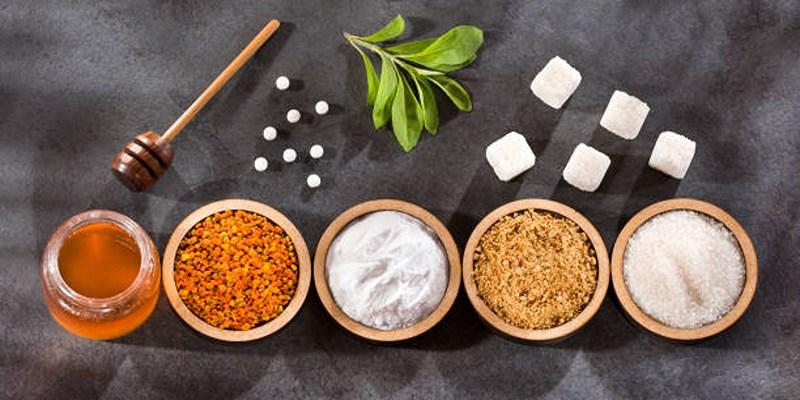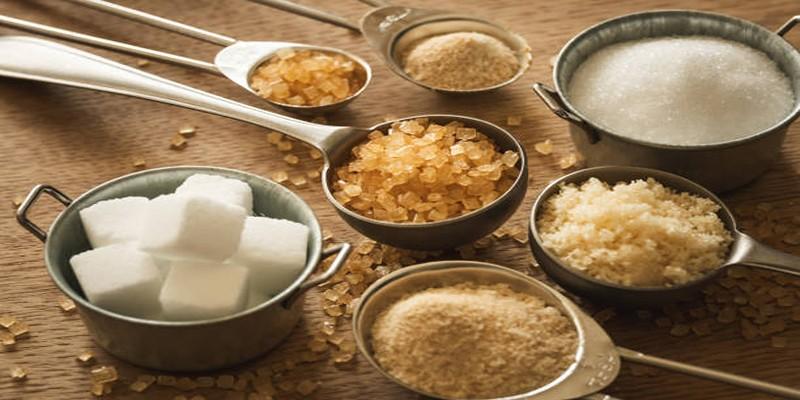Natural vs Artificial Sweeteners: Making the Healthiest Choice
Choosing between natural and artificial sweeteners can be challenging when aiming for a healthier lifestyle. Natural sweeteners like honey and maple syrup are often praised for their minimal processing and additional nutrients, while artificial options such as aspartame or sucralose are popular for their low-calorie appeal. Both types have their benefits and drawbacks, ranging from potential health effects to their impact on blood sugar levels. Understanding the differences between natural and artificial sweeteners can help you make informed decisions that align with your dietary needs and health goals.
A Guide to Sweeteners: The Essentials
Sweeteners are used to enhance the taste of food and drinks by adding sweetness. They fall into two main categories: natural and artificial. Natural sweeteners come from plants or other natural sources, while artificial sweeteners are created through chemical processes. Both are designed to provide sweetness without the calories or health risks linked to refined sugar.
The key distinction lies in their composition, how they are processed, and how the body metabolizes them. Natural sweeteners often include trace nutrients, while artificial sweeteners are specifically formulated to be low or zero-calorie. However, the health effects of each vary, making it important to weigh their pros and cons carefully.
Natural Sweeteners

Natural sweeteners come from sources like plants, fruits, or honeybees and are commonly seen as healthier alternatives to refined sugar. Popular options include honey, maple syrup, stevia, and agave nectar. Their appeal lies in minimal processing and potential nutritional perks.
Benefits of Natural Sweeteners
- Nutrient-Rich Options: Unlike refined sugar, some natural sweeteners provide trace nutrients. For instance, honey offers antioxidants, while maple syrup boasts small amounts of calcium and potassium.
- Lower Glycemic Impact: Certain natural sweeteners, like stevia, have a low glycemic index, helping to avoid sharp spikes in blood sugar levels.
- Enhanced Flavor Profiles: With their distinct and rich flavors, natural sweeteners can elevate the taste of dishes and beverages.
Drawbacks of Natural Sweeteners
- High Caloric Content: Most natural sweeteners still pack calories, potentially leading to weight gain when overused.
- Impact on Dental Health: Like sugar, they can contribute to tooth decay if proper oral hygiene isn’t maintained.
- Cost Considerations: Natural sweeteners often come with a higher price tag compared to refined sugar or artificial alternatives.
Artificial Sweeteners
Artificial sweeteners, also called non-nutritive sweeteners, are synthetic compounds created to deliver sweetness without the added calories. Common examples include aspartame, sucralose, and saccharin. These ingredients are widely used in diet sodas, sugar-free products, and low-calorie snacks.
Advantages of Artificial Sweeteners
- Zero Calories: Perfect for those aiming to cut calories or manage their weight, artificial sweeteners provide sweetness without contributing to caloric intake.
- Blood Sugar Stability: Unlike sugar, these sweeteners don’t raise blood sugar levels, making them a practical option for individuals with diabetes.
- Cost and Longevity: Artificial sweeteners are not only more affordable than natural alternatives but also boast a longer shelf life, making them a convenient choice for manufacturers and consumers alike.
Disadvantages of Artificial Sweeteners
- Potential Health Risks: Some research raises concerns about possible negative effects, such as alterations to gut bacteria or heightened cravings for sugary foods.
- Unpleasant Aftertaste: Many users report a lingering bitter or metallic aftertaste, which can detract from the overall experience.
- Controversy and Regulation: While most artificial sweeteners are approved by health authorities, a few have sparked debates regarding their safety, attracting significant regulatory scrutiny over the years.
Natural vs. Artificial Sweeteners:
When deciding between natural and artificial sweeteners, it's essential to weigh your health goals, dietary needs, and personal preferences. Here's a breakdown to guide your choice:
- Caloric Content: Natural sweeteners usually contain calories, while artificial sweeteners are calorie-free, making them a popular choice for those watching their intake.
- Health Considerations: Natural sweeteners may provide some nutrients but can still lead to weight gain and dental issues if overused. Meanwhile, artificial sweeteners are low in calories but come with potential health concerns that warrant consideration.
- Taste: Natural sweeteners often boast a richer, more complex flavor profile, whereas artificial sweeteners can leave a noticeable aftertaste.
- Cost: Artificial sweeteners tend to be more budget-friendly compared to their natural counterparts.
Choosing the Healthiest Sweetener:

Finding the healthiest sweetener depends on your personal needs, health goals, and lifestyle. With so many options available, it can feel overwhelming—but these tips can help you make an informed decision:
1. Moderation is Key
Whether you choose natural or artificial sweeteners, moderation is essential. Overindulging in any type of sweetener—natural or not—can lead to health concerns such as weight gain, metabolic issues, or digestive discomfort. Keep in mind that even natural options like honey or maple syrup are still forms of sugar. Striking a balance is crucial for your long-term well-being.
2. Read Labels Carefully
Many processed foods, even those marketed as "healthy" or "low-sugar," often contain hidden sweeteners. These commonly appear under names like high-fructose corn syrup, dextrose, or maltose. Take a close look at ingredient lists and nutrition labels to fully understand what you're consuming.
3. Choose Based on Your Health Goals
Your choice of sweetener should align with your specific dietary priorities. For example, if you're managing diabetes or aiming to control your calorie intake, low-calorie options like stevia or sucralose might be beneficial. On the other hand, if you're focused on eating more whole, minimally processed foods, you may prefer natural alternatives such as honey, maple syrup, or coconut sugar.
4. Experiment to Find What Works for You
Everyone’s taste preferences and health needs are unique, so what suits one person may not suit another. Explore different sweeteners to discover which ones you enjoy the most and that fit your lifestyle. For instance, you might favor the mild taste of agave or the bold, rich flavor of molasses. Finding the right match is a personal journey.
Popular Sweeteners and Their Uses:
Discover the unique qualities of some of the most popular sweeteners and how they can enhance your recipes:
- Honey: A versatile natural sweetener that shines in teas, baked goods, and salad dressings, offering both sweetness and depth of flavor.
- Stevia: A zero-calorie sweetener derived from the stevia plant, perfect for adding sweetness to beverages and desserts without the guilt.
- Maple Syrup: This rich, natural sweetener is a classic choice for pancakes, waffles, and baking, bringing a deep, caramel-like flavor to every dish.
- Aspartame: A widely used artificial sweetener often found in diet sodas and sugar-free products, known for its low-calorie appeal.
- Sucralose: A heat-stable, calorie-free artificial sweetener that’s great for baking and cooking, delivering sweetness without compromise.
Conclusion:
Choosing between natural and artificial sweeteners depends on your personal preferences, health objectives, and dietary requirements. Both have their advantages and drawbacks, and neither serves as a flawless replacement for refined sugar. By understanding their differences and making informed decisions, you can enjoy sweetness in your diet while prioritizing your health.












